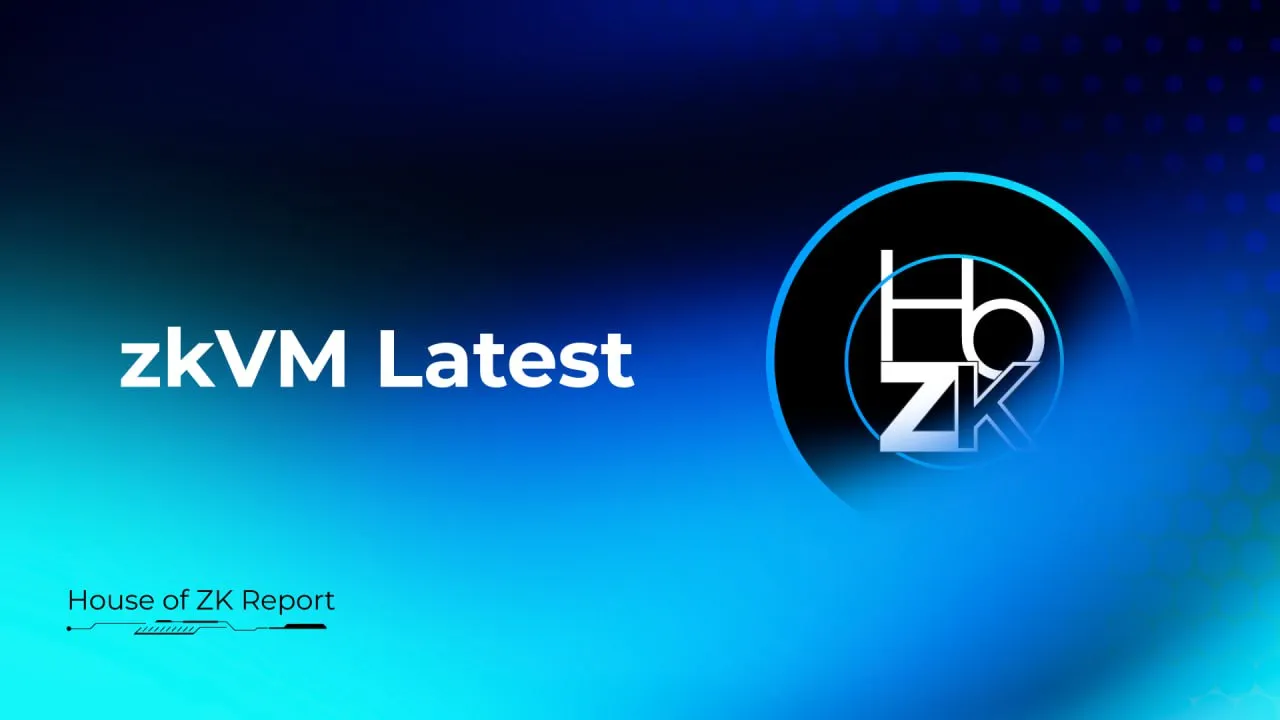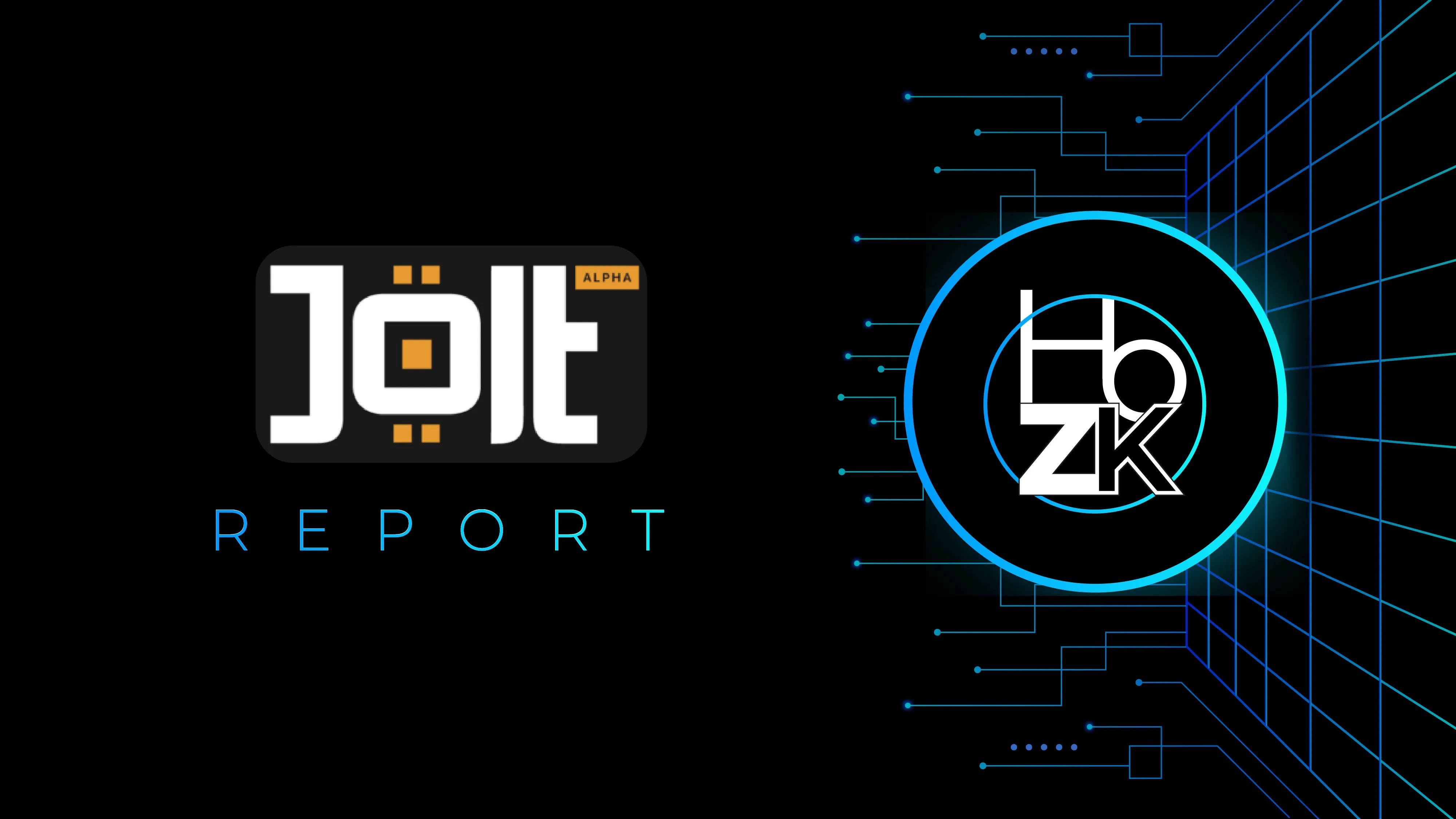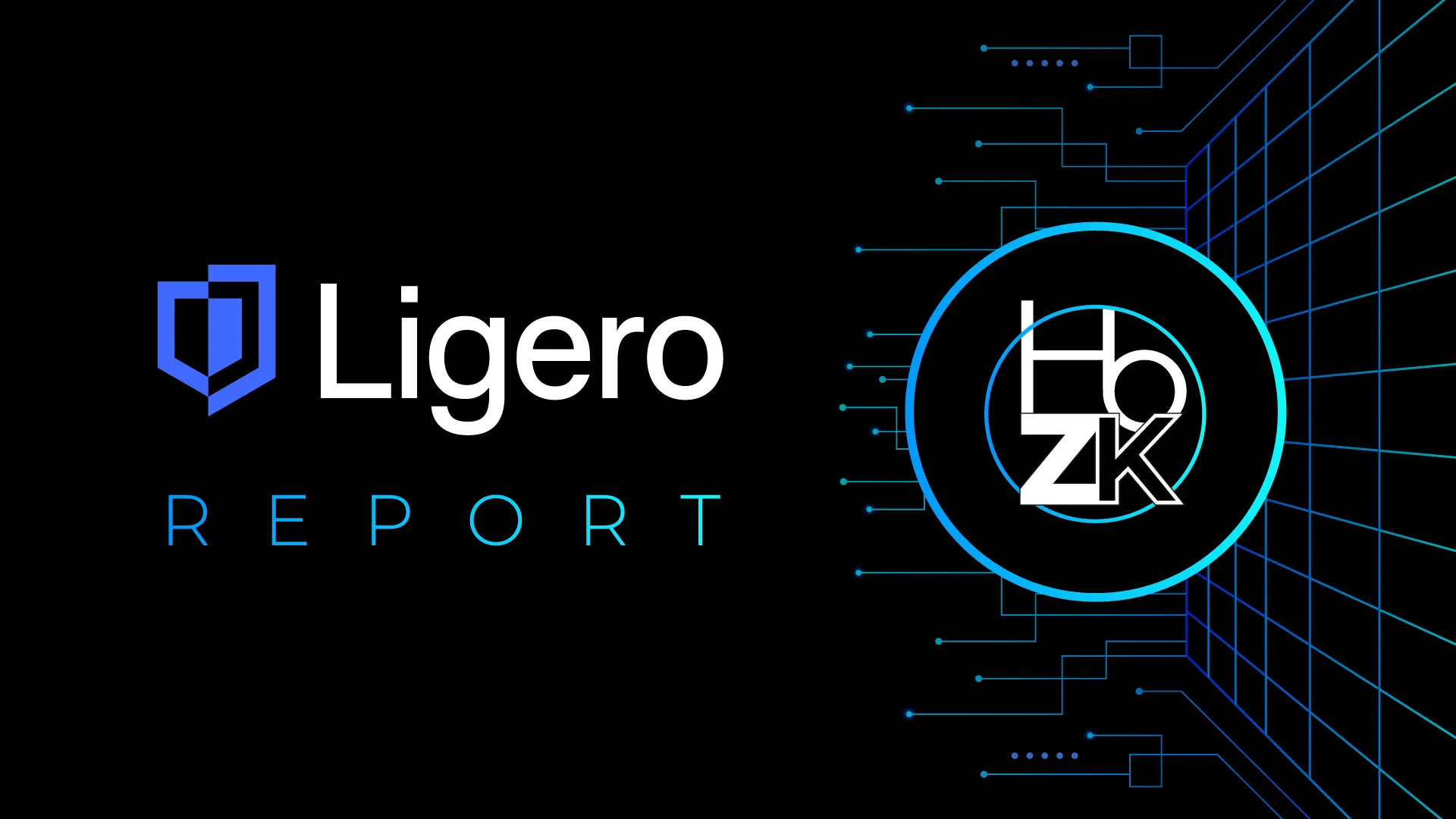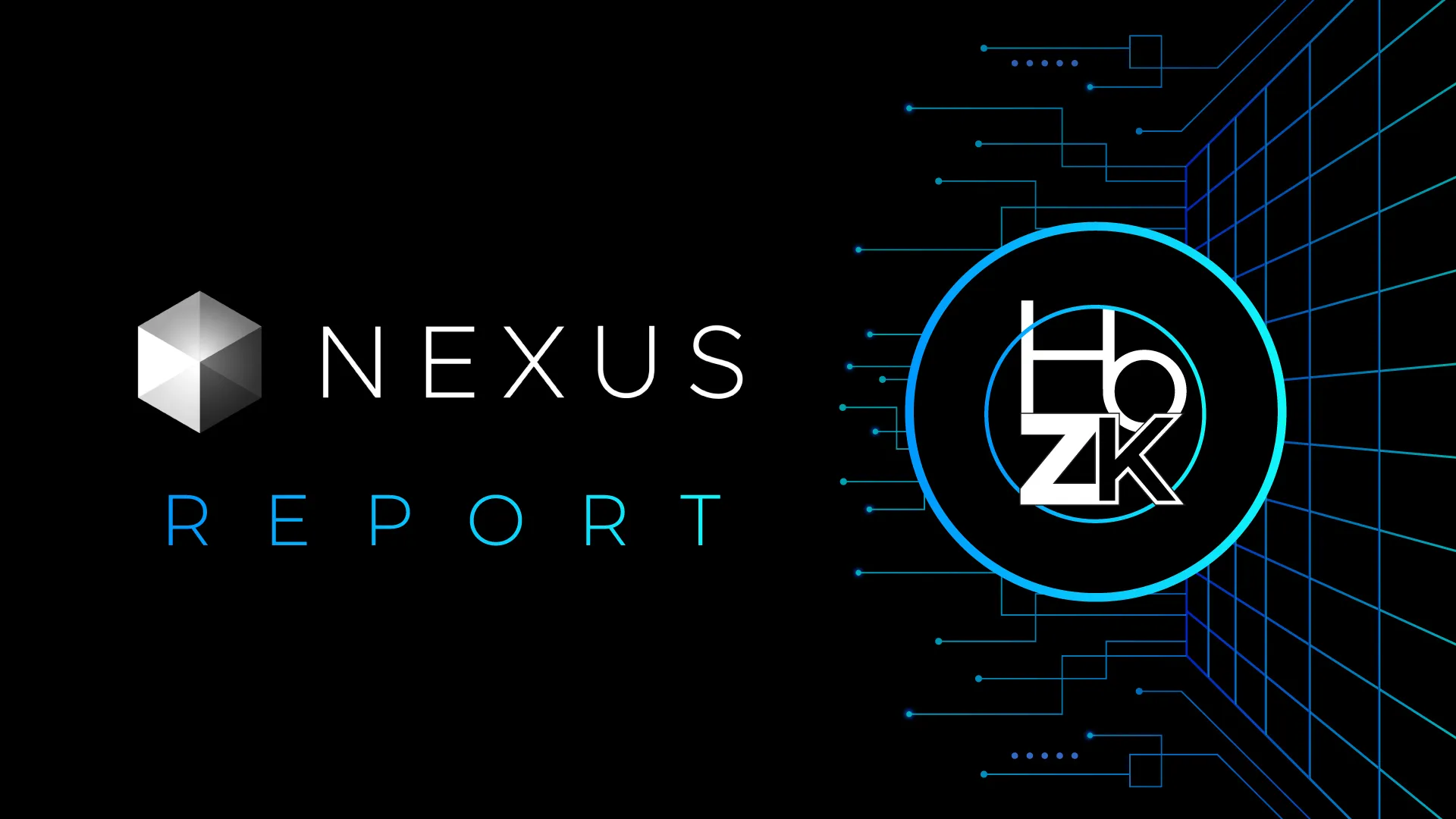
Here we report on the progress of the leading builders in the zkVM ecosystem, documenting recent significant releases, technical breakthroughs and general updates.
Featuring: @AntChainOpenLab, @DelphinusLab, Jolt (@a16zcrypto), @ligero_inc, @0xMiden, @NexusLabs, @RiscZero, @SuccinctLabs, @ziskvm, & @ProjectZKM.

@AntChainOpenLab has unveiled progress on its new zkVM project during the latest @eth_proofs Call #5, aiming to improve proving efficiency for @ethereum-related systems.
The team introduced an emulator using static binary translation and GPU-native trace generation, achieving a sixfold speed increase.
They also reported a 60% gain in recursive proving and are developing a unified protocol for cross-proof aggregation. GPU optimization and testnet launch are planned this season, with mainnet next.
Timestamp - 02:45: https://youtube.com/watch?v=2OvCaI1rJ1A&list=PLJqWcTqh_zKGthi2bQDVOcNWXCSvH1sgB&index=5

@DelphinusLab have been hosting a series of AMAs exploring how ZK can redefine fairness, privacy, and trust across Web3 ecosystems:
• In the first AMA alongside @Fair3_community and @unicornverse_io, the project unveiled ZKFair, an on-chain platform that encodes fairness into verifiable code. Built on the ZKWASM engine and Fair3’s decentralized insurance logic, it allows users to submit issues, vote privately but provably, and activate compensation when unfairness is confirmed - turning justice into an auditable and executable process: https://x.com/DelphinusLab/status/1975171201267028332
• The most recent AMA focused on the evolution of zkWASM into a multi-dimensional trust engine. Delphinus and @zk_agi discussed how verifiable computation now powers gaming, AI, and real-world data - from the zero-gas Automata “Play-to-Prove” game, to transparent AI reasoning, to SolarMine’s proof-of-energy model - bridging digital systems and physical truth through on-chain verification: https://x.com/DelphinusLab/status/1979022840944038188

@a16zcrypto’s Jolt zkVM now supports proving RISC-V programs with 64-bit registers (RV64IMAC), surpassing earlier 32-bit (RV32IM) performance: https://a16zcrypto.com/posts/article/64-bit-proving-jolt/
It reaches over 500,000 cycles per second on a MacBook and 1.5 million on a 32-core CPU. Built for large register sizes, Jolt handles 64-bit values efficiently while reducing memory use to about 700 MB per million cycles.
The team is now focusing on recursion, streaming proving, and Zero-Knowledge features.

Partnerships
1/ @ligero_inc has partnered with @0xMiden project to integrate its client-side ZK proving system into MidenVM:https://ligero-inc.com/ligero-miden-partnering-to-shape-the-future-of-scalable-compliant-privacy
The collaboration aims to cut proof times from 10-15 seconds to around one second, enabling private and compliant financial apps that scale. Miden provides onchain verification, while Ligero strengthens local proof generation - creating a full privacy stack ready for enterprise and institutional use.
2/ Ligero has also partnered with @RiscZero, integrating client-side privacy with verifiable computation: https://ligero-inc.com/ligero-risc-zero-building-the-future-of-private-verifiable-compute
Ligero’s Ligetron zkVM enables private proofs directly on user devices, while RISC Zero’s proof system verifies and aggregates these computations efficiently. Together, they enable private identity verification, confidential transactions, and auditable compliance processes across blockchain networks.
Education
Ligero has been producing an extensive range of educational content of late, covering the intersection of privacy, compliance, scalability, and composability in Web3:
• Composable Privacy: How ZK enables new use cases - swap + KYC, lending + payroll, and RWAs + compliance - without exposing user data: https://x.com/ligero_inc/status/1973400582997045513
• Compliance Without Compomise: Why privacy and regulation can finally work together through ZKPs: https://x.com/ligero_inc/status/1973783719090540632
• Billions of Gates, One Device, Zero Compromises: The challenge of proving on real devices - and how Ligetron enables billion-gate proofs on mobile: https://x.com/ligero_inc/status/1974144065387003927
• Portable. Scalable. Post-Quantum Ready: A zkVM built for real-world deployment - scalable, post-quantum secure, and easy to program in C++ or Rust: https://x.com/ligero_inc/status/1976694355235660031
• Private by Design. Open by Nature: The next evolution of crypto interoperability - proving logic across chains without revealing state: https://x.com/ligero_inc/status/1978489181526487047

Media
In a recent episode of @HouseofZK Radio, @bobbinth, Co-founder of @0xMiden, joined @alicelingl and @pavel_sinel to discuss Miden’s ZK-powered edge blockchain: https://x.com/HouseofZK/status/1975855233008803912
Bobbin explained how client-side proving, programmable notes, and a mix of public and private states enable scalable privacy and smoother user experience. The conversation also explored Miden’s Rust-based toolchain for building locally run, globally provable apps.
Full podcast: https://hozk.io/radio#76-Bobbin-Threadbare-Co-founder-of-Miden
Partnerships
1/ Miden has partnered with @ligero_inc to build a stronger privacy and scalability stack for real-world financial applications: https://miden.xyz/resource/blog/miden-x-ligero
Ligero’s high-performance proving system complements Miden’s client-side execution model, enabling faster, secure proof generation directly on user devices.
This collaboration enhances cryptographic security, compliance, and efficiency, allowing enterprises to conduct private, regulation-friendly transactions such as payroll, trading, and cross-border payments within a scalable, privacy-preserving blockchain framework.
2/ The project is also partnering with @OpenZeppelin to strengthen its privacy-first infrastructure with proven security and developer standards: https://miden.xyz/resource/blog/miden-x-openzeppelin
By integrating OpenZeppelin’s audited frameworks, Miden aims to provide institutional-grade safety across its ecosystem. The collaboration includes a new fungible token standard, private multisig models, and rigorous auditing to support secure, compliant, and privacy-preserving financial applications.

Tech
@NexusLabs has released its 10.17.25 changelog, highlighting key protocol and network updates: https://blog.nexus.xyz/nexus-changelog-10-17-25/
In summary, the release includes:
• Migration of core backend systems, including wallet balances and the claiming system, is underway to enhance testnet durability and transparency.
• Proving remains uninterrupted throughout the short migration window.
• Gridcrew Assembly is now live, introducing team-based proving where Runners join factions, complete quests, and earn collective rewards.
• Season 1 runs until October 31.
Network Status
Nexus has published its 10.14.25 network status update, outlining major performance gains across the proving network: https://blog.nexus.xyz/nexus-network-status-10-14-25/
• Proof throughput nearly doubled to 5,810 proofs per second, marking industrial-scale verifiability.
• Transaction reliability hit almost 100%, with over 77 million total transactions processed.
• Average block time dropped to 0.303 seconds, enabling faster finality.
• Verified contracts rose sixfold to 1.85 million.
• Network fees averaged 6.916 NEX, reflecting strong onchain activity.

Security
RISC Zero has disclosed a critical vulnerability in its risc0-zkvm-platform crate that could let a malicious host write to any memory location in the guest system: https://x.com/RiscZero/status/1973490104883990791
The issue has been patched, and partners have updated their systems. The full disclosure is available on the project’s GitHub repository: https://github.com/risc0/risc0/security/advisories/GHSA-jqq4-c7wq-36h7
Partnerships
@RiscZero has joined forces with @ligero_inc to integrate Ligero’s client-side ZK proving system into its verifiable compute framework: https://x.com/RiscZero/status/1979235818398154841
The collaboration allows users to create cryptographic proofs directly on their devices, protecting sensitive data while ensuring efficient on-chain verification through RISC Zero’s recursive proof system, merging privacy, scalability, and verifiability in one solution.

Tech
@SuccinctLabs has launched Succinct Private Proving, allowing ZKPs to be generated within Trusted Execution Environments for full data privacy: https://blog.succinct.xyz/private-proving/
Built on the SP1 zkVM, it lets developers write private applications in Rust without complex cryptography. The system enables secure, cloud-based private proving for use cases like private DEXs, stablecoins, and identity systems. @hibachi_xyz, a private perpetual DEX, is already using it successfully.
Appointments
Succinct has appointed Brian Trunzo (@NTBro) as its new Chief Growth Officer: https://x.com/SuccinctLabs/status/1975599528255627390
Brian previously led business development at @0xPolygon, where he helped bring global brands like Nike, Starbucks, and Fox into crypto, and later guided @Mantle_Official’s move to a ZK Rollup. With experience in law and consumer strategy, he will drive Succinct’s enterprise partnerships and growth.
Formal Verification
Succinct has completed the formal verification of SP1 Hypercube’s 64-bit RISC-V zkVM cores using the Lean proof assistant, in collaboration with @NethermindSec and supported by the @ethereumfndn: https://blog.succinct.xyz/nethermind-lean/
The verification covered 62 RISC-V opcodes compared against the official Sail specification. The project addressed challenges in tool integration, constraint extraction, and opcode reasoning, resulting in a modular framework for future verification and research.
Partnerships
Succinct announced a collaboration with @openmind_agi to advance the robot economy: https://x.com/SuccinctLabs/status/1977914790501830665
The partnership focuses on using ZK technology to process the vast sensor data generated by robots. This approach enables robots to share information through private, verifiable proofs while improving their autonomous communication and decision-making.

zkVM Update
@ziskvm released version v0.12.0, introducing a distributed proving system with a gRPC-based coordinator and achieving a 20% performance boost while maintaining 128-bit quantum-resistant security: https://x.com/ziskvm/status/1973341308044423357
In tests on 42,000 @ethereum mainnet blocks, 99.99% were proven faster than block time using up to 64 GPUs and 95% with 32 GPUs. Computations ran on nodes with @nvidia H100 and AMD EPYC processors, supported by @eurocc_nl.
The project also introduces a secure method for generating shared cryptographic challenges across multiple provers in distributed ZKPs: https://zisk.technology/secure-challenge-derivation-in-zisk/
Instead of relying on individual random sampling, ZisK uses an accumulator based on lattice-based multiset hashing to combine all polynomial commitments into one canonical challenge.
This approach ensures efficiency, consistency, and resistance to collision or bias, achieving roughly 128-bit security under standard SIS hardness assumptions.

Monthly Report
@ProjectZKM published its September update, marking key milestones in Ziren’s development and community progress: https://zkm.io/blog/the-zkm-september-update-2025
Highlights include:
• Independent Review: @TheProofLab evaluated Ziren v1.1.4: https://github.com/ProofLabDev/prooflab-research-samples/blob/main/zkVMs/ziren_evaluation_report.md
• Publications: Full-stack materials and part three of the Multivariate Sumcheck series released.
• Community: Early Contributor Program concluded with acknowledgments for key contributors.
• Token2049: Highlights from @token2049 in Singapore.
Events
ZKM CTO @sd_eigen will speak at the upcoming @invisiblgarden program in Buenos Aires, mentoring builders and sharing his experience in zkVMs, rollups, and Bitcoin scaling research.: https://x.com/invisiblgarden/status/1974884298340569093
The ZKM team also hosted an event at @frontiertower in San Francisco, offering hands-on developer education around their MIPS-based zkVM.